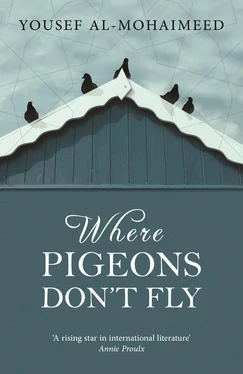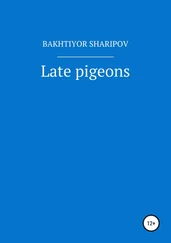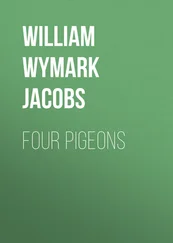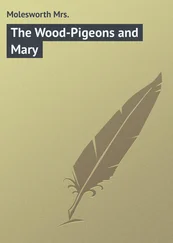I returned to the Ministry’s prison in Riyadh where I lived among new cellmates, before they moved me to Ulaysha Prison. I sensed that they would release me, then. It was wonderful there: we read newspapers, listened to the radio and knew what was going on around us.
I found it hardest to sleep at Eid and just afterwards, because the release orders were issued towards the end of Ramadan and when the list of names was published, ten or fifteen prisoners, or sometimes just one, and I did not find mine among them, I would enter a state of severe disappointment. At the end of a year’s hardship, injustice, tedium and anticipation, I would be hanging on the small and nebulous hope of the Ramadan to come.
They let me go at the end of Ramadan 1404 AH. The head of the prison’s investigations unit sent for me. I was asleep. My cellmates woke me and I sprinted for the bolted door in my underwear.
‘Put your robe on, idiot!’ one of them shouted, so I dressed and Daghaylaib led me to the office of Lieutenant Saoud.
‘God willing, this is your chance!’
That’s what he said. They were always mysterious, even though they had become our friends through long acquaintance. He said nothing more, even though my father and Ibrahim were in the room next door finishing up the paperwork.
There was a detective who was supposed to be standing in a hidden location behind the chair where I sat, studying my features through this mirror-like panel. He was meant to familiarise himself with me, tail me in the first months following my release and write reports on my conduct. Instead, he came straight into the room. The lieutenant shouted at him, threw him out and smiled.
‘This lot just don’t get it!’ he said in his Hejaz accent. ‘Idiots, I tell you.’
Then he explained to me that the man who had just come in had been given the task of following me and warned me at length to keep clear of suspicious activities that might do me harm and to ensure my behaviour was irreproachable.
‘Suleiman, you have to prove your good behaviour. Invite the man for a cup of coffee or something!’
Then he laughed, and I laughed with him.
My father, my uncle and my brother came to collect me. Walking out with them was a wonderful moment, delightful, but at the same time terrifying. I came out in Ramadan to find my family home transformed into a scene of great celebration.
Scarcely a month passed before I was swept by nostalgia for my time inside. There, the days had all been alike, but that serenity and calm and one’s reliance on others just did not exist in the city outside. There you were required to work, to scrabble and lie and cheat and dissemble, to get married, to be a good father, to own a house, to…
My brother said I should travel in order to shake off my depression, but I had no passport; they had confiscated it when I was arrested. I went back to the prison investigations unit and asked the lieutenant if I might have it back. Through half-closed eyes he looked at me and said, ‘You need to go to the Interior Ministry and present a request for reconsideration.’
‘A request for reconsideration!’ I whispered within myself.
As though I had been lost and created anew with no passport or memory.
I went and wrote out a letter in which I begged them to recreate me as a human being. They are the Creator and we their dependents.
I forgot to tell you: when I came to use my identity papers they told me, ‘You have to renew your civil status and get a new ID Card, instead of using the old papers.’
No objections. We’re their dependents, my boy, dependents in every sense, from our nationality to the choking air that we breathe.
A month after submitting my request for reconsideration I went back to the lieutenant in prison. He rebuked me, ‘You’re the strangest, stupidest prisoner I’ve seen in my life. Prisoners never show their face around us once they’ve left!’
To myself, I said, ‘I’ve been longing for the days of loafing around, sleeping, reading, writing and having fun inside. It’s an extraordinary blessing to be found nowhere but in your venerable prison.’
Every five or six months I would go back and ask what had happened to my request for reconsideration, to which the answer would be, ‘Your letter hasn’t come yet.’
Where has it got to?
One year and two months later I was informed they had consented to my request and a week after that I made my way to the passport office and entered the section for Saudi citizens. I stood before the official and submitted my request, which he examined for a few seconds then asked, ‘Is this your first passport, or have you owned one previously?’
With the innocence for which my brother envied me I answered, ‘I had a passport before!’
He raised his head from my documents. ‘Where is it?’
‘You’ve got it!’ I said, stupid as only I could be.
He frowned and shook his head. ‘How do you mean?’
I explained how I had been a political prisoner and he indicated that I should go to the special desk: the desk run by the security services. Off I went and found myself standing before an alert young man with blazing eyes who told me, ‘Your passport has been placed in the archives; it can’t be recovered.’
I was anxious and almost wept.
‘Well, what’s to be done?’ I asked.
‘My good fellow,’ he said casually. ‘There was no need for you to say you’d owned a passport. If you’d asked the official for a new passport he would have searched the computer and your name wouldn’t have appeared. Your old one predates the computer system.’
‘What can I do now?’ I asked him.
He was dismissive. ‘Come back in a week. Maybe he’ll have forgotten your name and what you look like.’
Just two days later a colleague of mine at the distribution company suggested I apply at the passport office in Sharqiya and put me in touch with one of his relatives there. I did so and when the passport came through I left the building almost flying. The green passport was paper wings that could take you anywhere in the world. It was my key, my first revelation of the beachfront in Bahrain where the low, gentle waves broke before a bewitching sunset and the sun’s golden rays scattered and tangled in Soha’s hair. There was nothing more beautiful than to stand surrounded by waters that stretched endlessly away. It was as though life itself had no limits, as though the cell no longer surrounded me, though I sometimes had the feeling that it was pursuing me, embedded within me like a tree I could not chop down or break away from.
Part 6. No one picks the lock
He did not turn;
He did not see any of us,
But stared at the doorstep and the door
And surrendered his gaze to the plants on the balcony.
Bassam Hajjar, A Few Things
— 43 —
THE SHUBRA DAWN SEEMED calm and mild: a street stretching away east and west, twenty metres wide and lit with dim yellow lamps, a plastic speed bump midway down its length outside Fantoukh Mosque.
Out of the north door that opened on to the street came Abdel Kareem, the end of his shimagh wrapped about his neck, unable to conceal his anarchic black beard. He descended the steps in his sandals then turned right into the backstreets. Halting at a water fountain by a zawiya , he cupped his hand, took three gulps and went on his way. He greeted Ahmed al-Sameetan in a voice surrendering to sleep and the two of them walked home. Ahmed entered first and courteously invited his friend in. ‘Please do …’ to which the other, passing on, replied, ‘Too kind…’
Читать дальше












